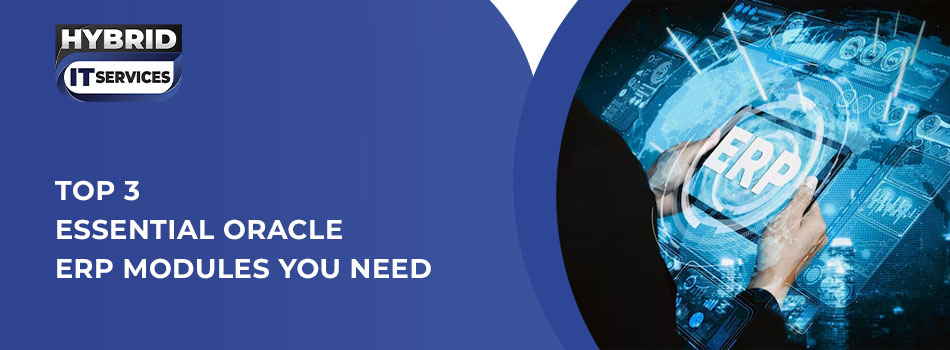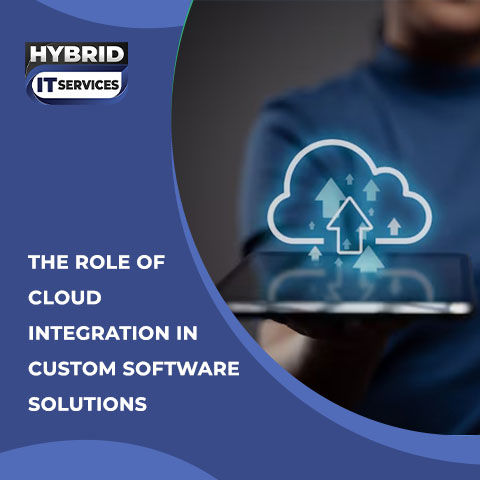Enterprise Resource Planning (ERP) systems are vital tools for modern businesses, helping them integrate, streamline, and optimize their processes. With ERP, companies can manage resources, track operations, and analyze data in a centralized manner.
However, choosing the right ERP model depends on the size of the business, its operational needs, and budget. At Hybrid IT Services, let’s discuss the top three ERP models—on-premises ERP, cloud-based ERP, and hybrid ERP—and see features, benefits, drawbacks, and use cases.
You May Also Read: ERP Software Development: The Ultimate Guide
Understand On-Premises ERP
On-premises ERP refers to systems installed on physical servers located within the company’s premises. This traditional model ensures the company has full control over its ERP software and data. The organization is responsible for maintaining the hardware, software, and security protocols.
Key Features
Customizability: On-premises ERP systems can be tailored to specific business needs, providing a high degree of flexibility.
Data Sovereignty: Data is stored locally, ensuring complete control over sensitive information.
Offline Functionality: Since the system is on-site, it can continue to function without relying on an internet connection.
Benefits
Businesses retain total control over their ERP system, including data management and security. Sensitive data is stored on-site, reducing exposure to potential cloud vulnerabilities. Highly adaptable to meet the unique processes and workflows of the business.
We recommend you also read: Benefits of Custom ERP Software for Businesses
Drawbacks
Initial setup costs for servers, software licenses, and IT infrastructure can be significant. Companies need a dedicated IT team to manage and update the system. Expanding the system requires purchasing additional hardware, which can be expensive and time-consuming.
Ideal For
- Large enterprises with robust IT teams.
- Businesses with strict regulatory requirements regarding data sovereignty.
- Companies that need a highly customized solution.
Understand Cloud-Based ERP
Cloud-based ERP systems are hosted on remote servers and accessed via the internet. Vendors manage the infrastructure, software updates, and security, allowing businesses to focus on their operations. This model operates on a subscription basis, making it cost-effective and accessible for many businesses.
Key Features
Accessibility: Users can access the system from anywhere with an internet connection.
Scalability: Resources can be adjusted easily as the business grows.
Automatic Updates: The vendor handles updates, ensuring the software is always up to date.
Benefits
No need to invest in physical infrastructure; businesses only pay for a subscription. The vendor manages system updates, backups, and security, reducing IT workload. Accessible on multiple devices, making it ideal for remote teams and global operations.
Drawbacks
Sensitive data stored on the cloud may be vulnerable to breaches if not properly secured by the vendor. A reliable internet connection is required for uninterrupted access. Customization options may be restricted compared to on-premises solutions.
Ideal For
- Small to medium-sized businesses with limited IT resources.
- Companies with remote or geographically distributed teams.
- Organizations looking for a cost-effective, scalable solution.
Understand Hybrid ERP
Hybrid ERP combines elements of both on-premises and cloud-based systems. It allows businesses to keep critical functions on-site while leveraging the flexibility of the cloud for other operations. This model offers the best of both worlds, balancing control with convenience.
Key Features
Flexible Deployment: Businesses can decide which components to host on-premises and which to move to the cloud.
Cost Efficiency: Critical data stays in-house, while less sensitive processes use cloud resources.
Integration Capabilities: Hybrid ERP often integrates seamlessly with other cloud or on-premises systems.
Benefits
Companies can choose a mix of deployment methods to suit their needs. Sensitive data can remain on premises, addressing regulatory concerns. Reduces the need for extensive hardware while still offering robust features.
Drawbacks
Managing a hybrid system requires coordination between on-premises and cloud components. Compatibility issues may arise between cloud and on-premises systems. Combining two systems may increase initial expenses compared to fully cloud-based solutions.
Ideal For
- Businesses with unique operational needs requiring both control and scalability.
- Companies are transitioning from on-premises to cloud-based systems.
- Organizations with hybrid work models or multiple locations.
Before deciding, assess your current workflows, long-term goals, and IT capabilities. A well-chosen ERP system can transform your business, fostering growth and efficiency.
Choose Hybrid IT for Custom ERP Software Development Services
Choosing the right development partner is crucial, and Hybrid IT stands out as a leading provider for custom ERP software development services. Here’s why Hybrid IT should be your top choice for developing custom ERP systems:
For more insights, read: Factors to Consider while Choosing the Right ERP System
- Scalable Solutions
- Industry-Specific Modules
- Enhanced User Experience
- Keep Sensitive Data Secure
- Integrate Seamlessly
- Artificial Intelligence (AI)
- Internet of Things (IoT)
- Machine Learning
- Cost-Effective Solutions
In today’s competitive business environment, a robust Enterprise Resource Planning (ERP) system is essential to streamline operations, improve decision-making, and drive growth. However, off-the-shelf ERP solutions often fail to meet the unique needs of businesses. That’s where Hybrid IT’s custom ERP software development comes in, providing tailored solutions that address specific challenges and operational workflows.






